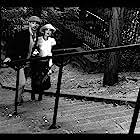In today's blog, we will talk about how goal complex theory, achievement motives, and secondary control beliefs can shed light on her character.
Goal Complexity:
Initially, Carrie's motivation in "Sister Carrie" is strongly influenced by introjected motivation. She relocates to Chicago with the goal of pleasing others, especially her family, who expect her to find a stable job and establish herself. Her ambition to become an actress is not entirely self-driven, but rather influenced by societal expectations.
Example: When Carrie arrives in Chicago, she believes pursuing an acting career will fulfill her own desires and gain her family's approval.
As she experiences the allure of the city and entertainment industry over time, her motivation shifts. She becomes more focused on personal success and recognition, indicative of a Performance Approach orientation. Her aspiration becomes to outshine others in the theater world.
As Carrie becomes increasingly successful in her acting career, she strives for greater recognition and competes with fellow actors for leading roles. For instance:
However, as the novel unfolds, her fear of failure and professional challenges prompt her to adopt a Mastery Avoidance orientation, where she prioritizes avoiding disappointments and setbacks.
If uncertain about a role, she may choose a less risky option to evade potential failure.
Achievement Motives:
Carrie's motivations in the story can be analyzed through the lens of achievement motives, specifically success orientation and failure avoidance.
Success Orientation: At first, she displays a strong inclination towards success orientation. She visualizes a future characterized by success, fame, and recognition in the acting industry. Her actions are driven by the hope of success.
Carrie is excited about the prospect of becoming a famous actress and is motivated by the idea of achieving celebrity.
Failure Avoidance: As she faces more and more challenges in her career, she becomes increasingly cautious and risk-averse in her career decisions: After encountering numerous challenges and setbacks in her industry, Carrie has developed a heightened fear of failure. As a result, she now selects roles and opportunities that minimize the likelihood of disappointment.
Secondary Control Beliefs:
In "Sister Carrie," Carrie faces external forces and limitations while pursuing success, leading to her realization of powers beyond her control.
She realizes that her success is determined not only by her talent and effort, but also by industry trends, public opinion, and the decisions of producers and directors.
This realization of external factors and the impact of secondary control beliefs affects her motivation and decision-making. She adjusts her objectives and tactics to address external factors.
For instance, as Carrie navigates the constantly evolving entertainment industry, she modifies her career aims and approaches while acknowledging the impact of external forces on her achievements.


Your analysis is very thoughtful and thorough! I really appreciate your attention to detail and your alignment of your character's actions to Goal Complexes and Primary/Secondary control
ReplyDelete